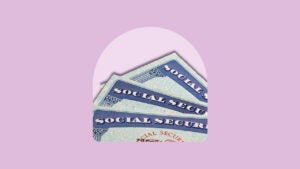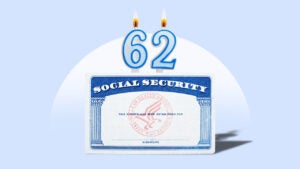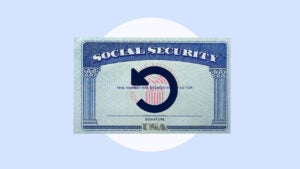Social Security payment schedule: When are benefits paid each month?

Social Security retirement benefits are paid to retirees and recipients of survivors benefits each month. Benefits are paid in the month following the month for which they are due. For example, a recipient would receive June’s benefit in July, but what day of the month does the check come in?
When a person receives their payment depends on a number of factors, like when they were born and whose record the benefits are being claimed on:
- If you’re receiving benefits on your record, the exact date you receive your benefit depends on your date of birth.
- If you’re receiving benefits on someone else’s record, such as for your spouse that passed away, the date of payment depends on their date of birth.
- Those receiving spousal benefits under their living spouse will also receive benefits that depend on their spouse’s date of birth.
Social Security payment schedule
The payment schedule is as follows:
| Date of birth | Benefits paid each month on: |
|---|---|
| 1st – 10th of the month | The second Wednesday |
| 11th – 20th of the month | The third Wednesday |
| 21st – 31st of the month | The fourth Wednesday |
Those who started receiving Social Security benefits before May 1997 receive their benefits on the third of each month. In the event the third of the month falls on a weekend, the payments are made on the Friday prior.
If you receive both Social Security and Supplemental Security Income (SSI), Social Security benefits are paid on the third of each month and SSI on the first. Supplemental Security Income is a federal program that provides supplemental income intended to help disabled, blind and aged individuals and families who have little income. The Social Security Administration (SSA) pays SSI benefits, but the program is funded by general tax revenues, not Social Security taxes.
How will you receive your Social Security payment?
If you haven’t already done so, one of the best ways to ensure that you seamlessly receive your Social Security payment is to set up direct deposit. This can be done when initially signing up for Social Security benefits. If you did not initially sign up for direct deposit, you can do so through a mySocialSecurity account.
A mySocialSecurity account allows you access to a portal where you can handle many of your Social Security needs. Through mySocialSecurity, you can request a new Social Security card and estimate how much your future benefits might be, among other tasks. Through this portal you can also set up your benefits to be paid through direct deposit. You do not need to be a retiree or already receiving Social Security benefits to open an account.
You can also call the Social Security Administration toll-free at 1-800-772-1213 to sign up for an account.
Those without a bank account can receive payments through the Direct Express card program. This program allows deposits from federal payments such as Social Security benefits to go directly to the recipient’s card. You can call 1-800-333-1795 to sign up for the program, or go online to www.godirect.org.
Can I receive my payment by check?
If you are applying for Social Security or SSI benefits, you must elect to receive your benefit payments electronically — through either direct deposit or Direct Express — when enrolling. If you currently receive your benefit payment through a check, you will need to switch to one of the electronic payment options, according to the SSA.
There are rare circumstances where exceptions may be granted, but benefit payments generally must be through one of the two electronic options of direct deposit or Direct Express.
Is Social Security taxable?
The Social Security Administration says that about 40 percent of all people receiving Social Security benefits will have to pay taxes on those benefits.
To receive tax-free Social Security, SSA considers something known as your “combined income,” which must be under certain thresholds.
Your combined income consists of three parts:
- Your adjusted gross income, not including Social Security income
- Tax-exempt interest
- 50 percent of your Social Security income
Add those amounts up, and if you’re under the threshold for your filing status, you won’t be paying federal taxes on your benefit.
Here are the thresholds for combined income:
- $25,000, if you’re filing as an individual
- $32,000, if you’re married filing jointly
- For married filing separately, the Social Security Administration simply says that “you’ll probably pay taxes on your benefits.”
Even if you’re above this threshold, however, you won’t pay tax on your full benefit. You’ll only be taxed on either 50 or 85 percent of your Social Security.
— Former Bankrate reporter Georgina Tzanetos wrote a previous version of this story.
Why we ask for feedback Your feedback helps us improve our content and services. It takes less than a minute to complete.
Your responses are anonymous and will only be used for improving our website.
You may also like

What is the maximum Social Security benefit?





